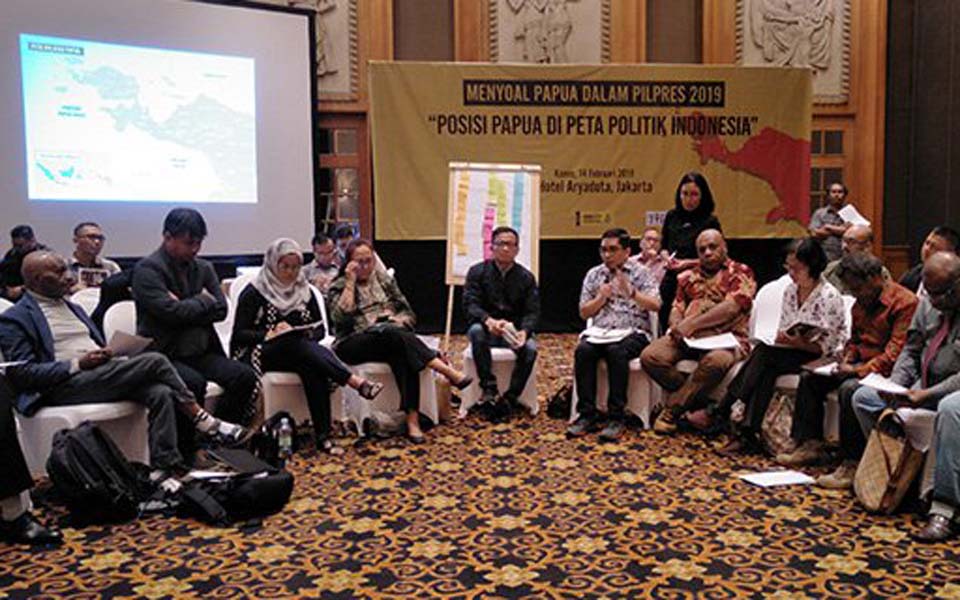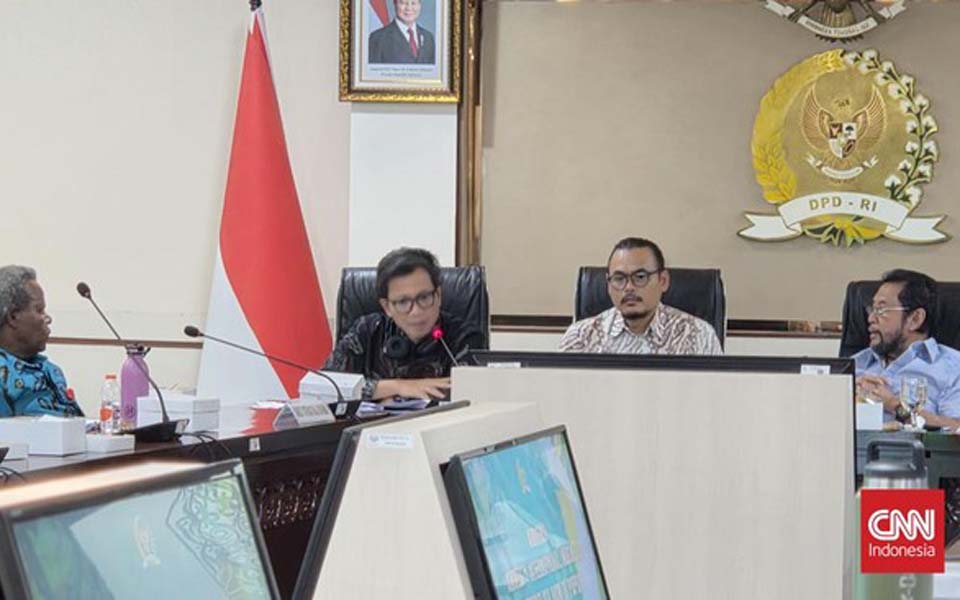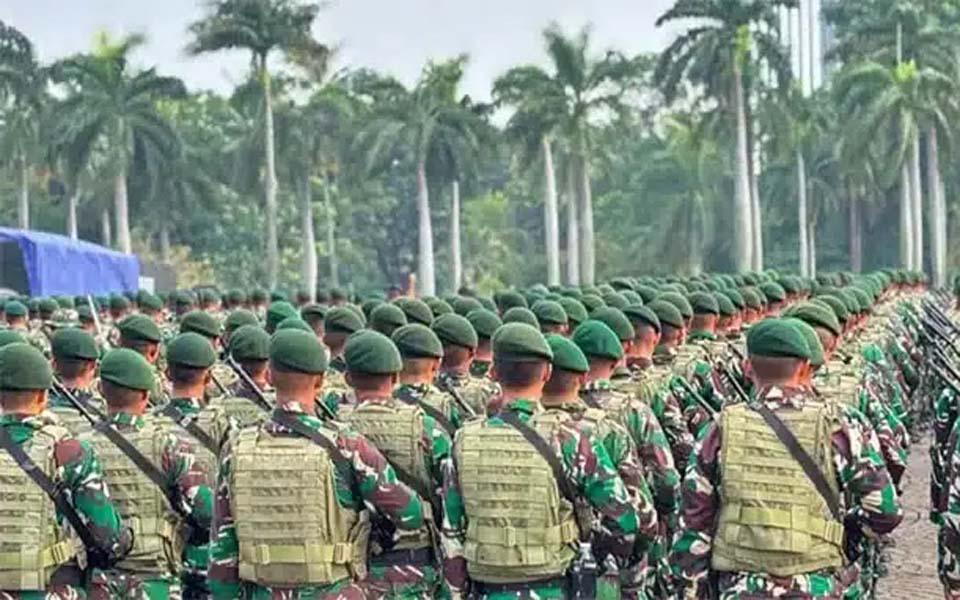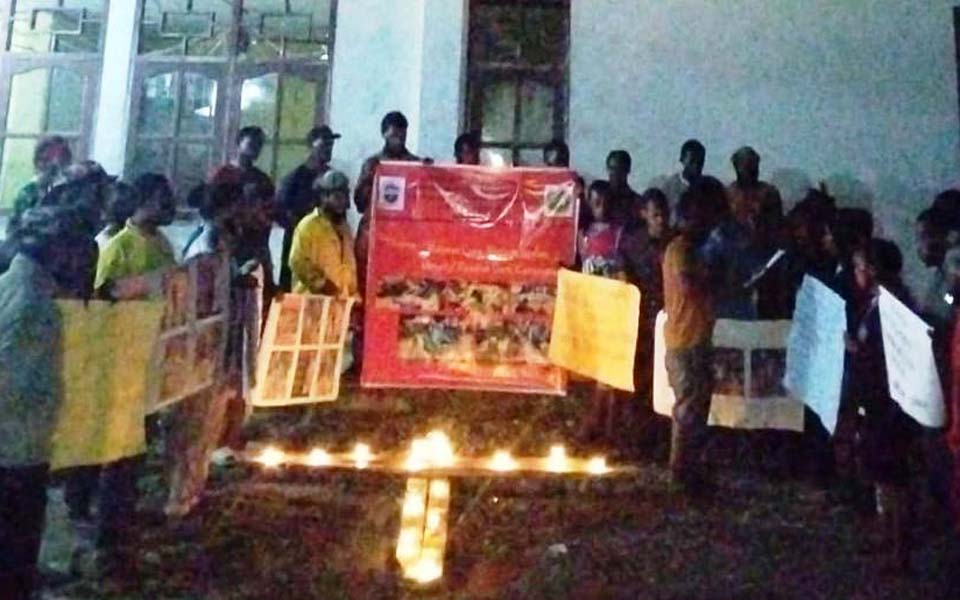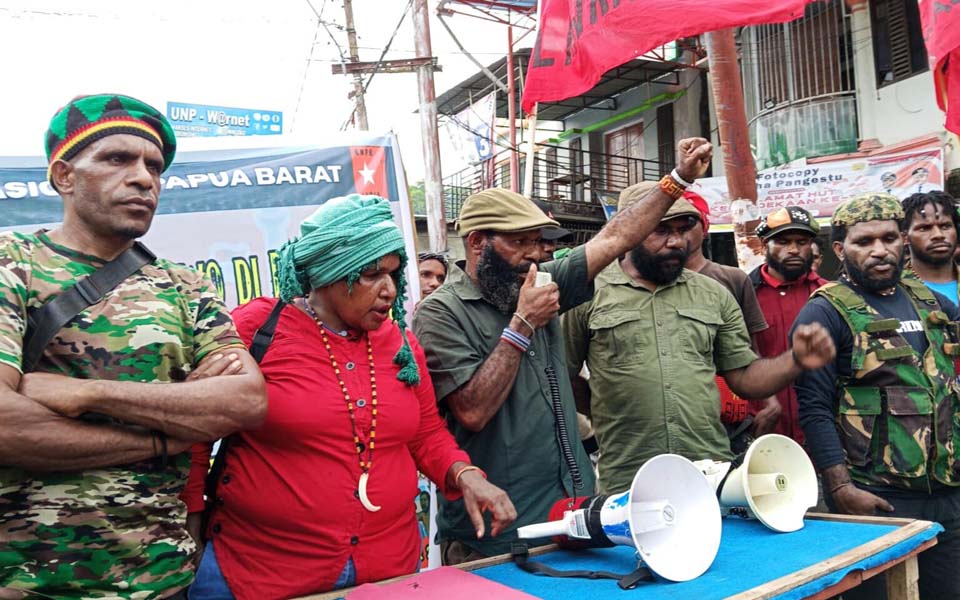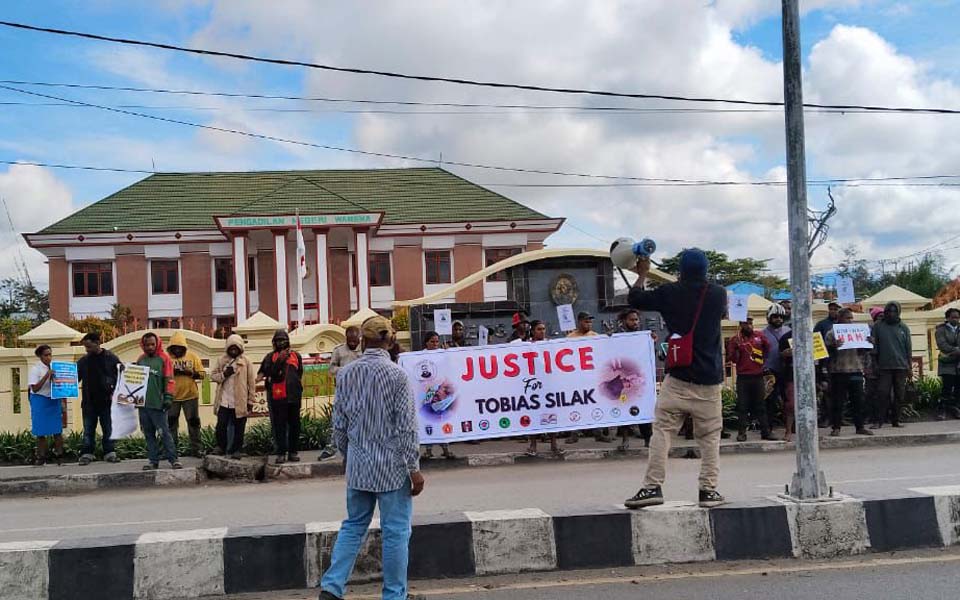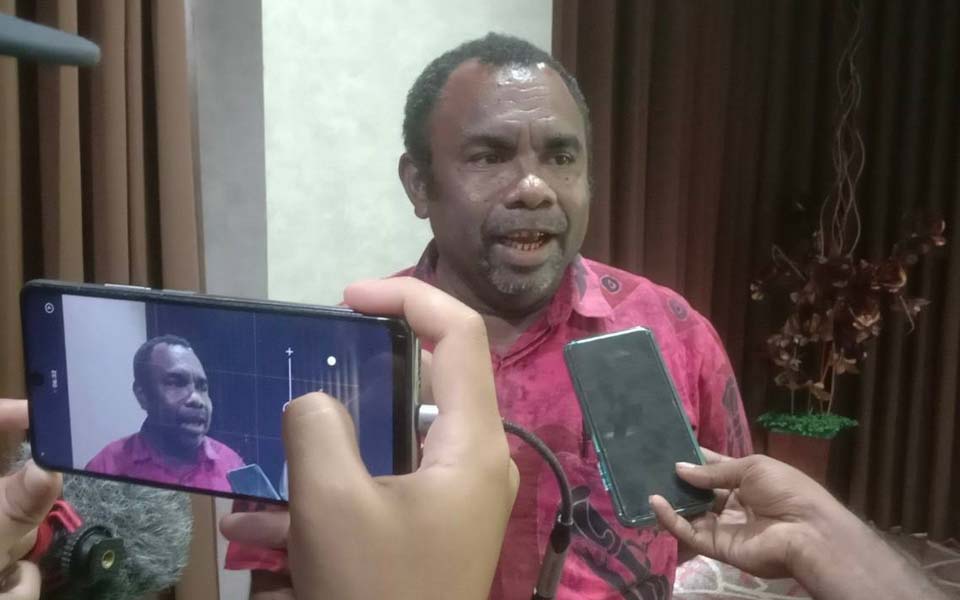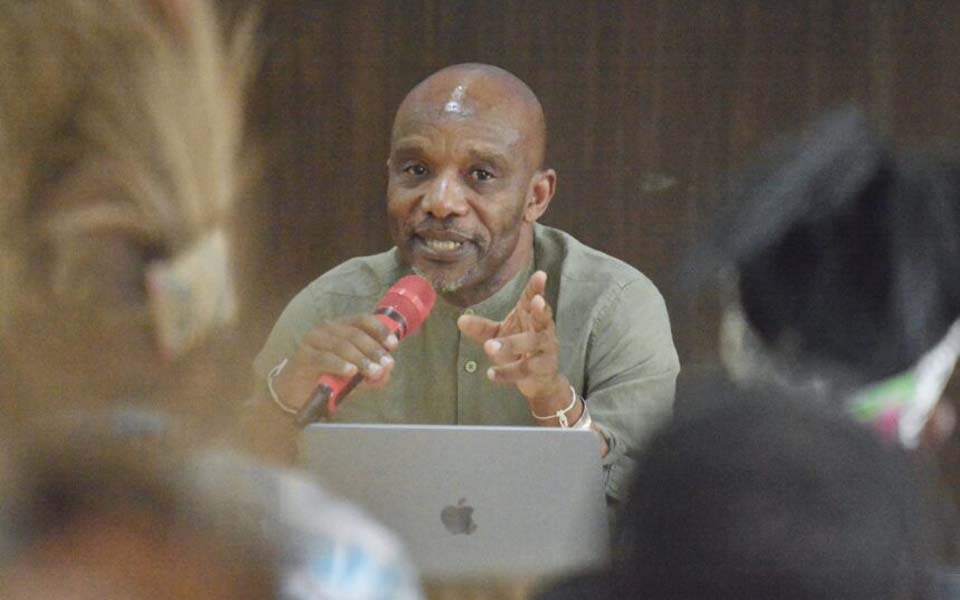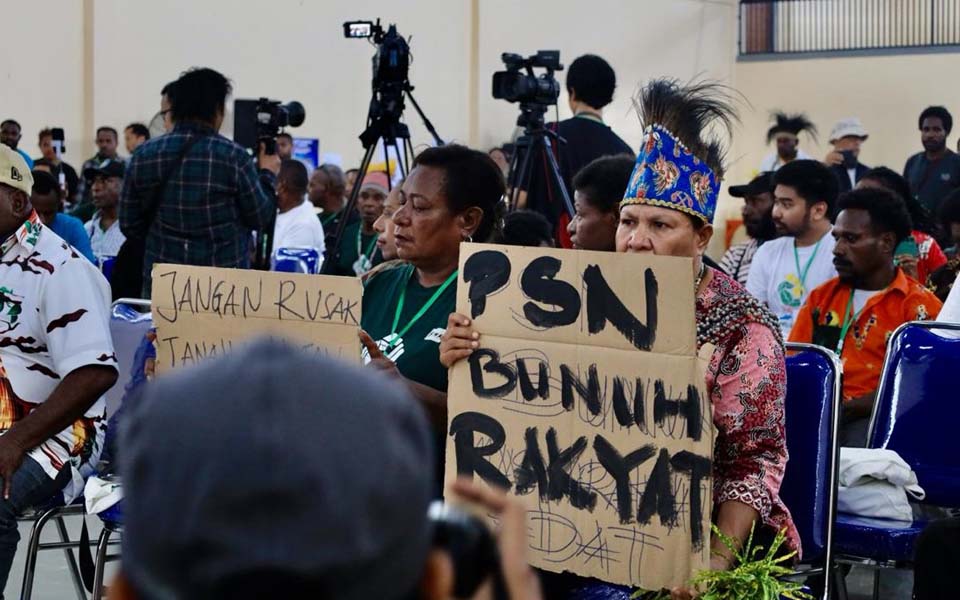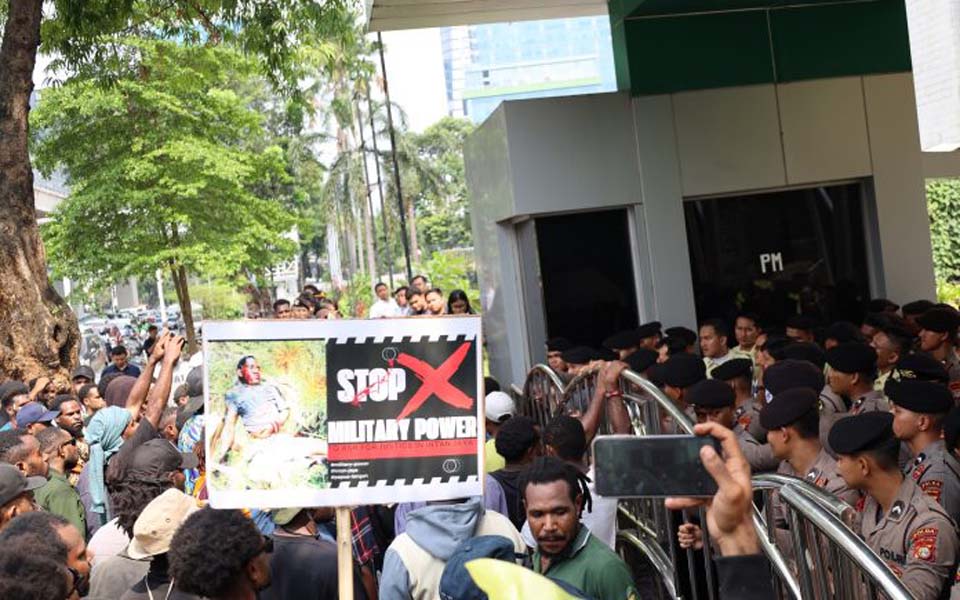Jakarta – Indonesian Institute of Science (LIPI) researcher Aisah Putri Badriati is surprised that neither presidential candidate raised the issue of West Papua in first presidential debate on January 17.
Puput, as his usually called, suspects that this is because of the two candidate’s track records, neither of which has a clean record on human rights (HAM) in the land of Papua.
“In the case of number one [President Joko “Jokowi” Widodo] for example, he promised to resolved HAM violations but to this day there has been no clarity. In the case of the second [Prabowo Subianto], we already know about his involvement is in HAM violations”, said Badriati during a discussion organised by Amnesty International Indonesia at the Aryaduta Hotel in Jakarta on Thursday February 14.
Badriati actually thinks that a discussion on Papua will only emerge during the second presidential debate on Sunday February 17. This is because economic issues will be one of the topics in the debate.
But even if the issue is raised, Badriati suspects that the discussion will just be on economic problems in Papua.
“It [should] not just be about the failure of development but there are three other [important] aspects, namely marginalisation, political history and HAM violations”, said Badriati whose research focus is Papua.
Filep Karma, a Papuan pro-independence figure and former political prisoner who also took part in the discussion, said that golput [white group, to abstain from voting] is the most sensible option. According to Karma, both presidential candidates are as bad as each other.
Aside from the two candidate’s track records, both of which are bad, Karma also feels that it is difficult to trust the outcome of elections in Papua.
“Our experience has been that even if we don’t go to the TPS [polling station], the vote [turnout] will still be 100 percent”, said Karma laughing.
Karma also said that the elections which he has experienced and witnessed in Papua are often marked by violence. This he said has not changed from one regime to the next.
“For me, no matter who is elected it will have no benefit for us as Papuan people. Because what we are faced with is the barrel of a gun. That’s what happens”, said Karma.
Amnesty International Indonesia Executive Director Usman Hamid said that in his view neither presidential candidate has a clear mission or vision on how to improve the situation in Papua.
During the presidential election (pilpres) campaign so far, Hamid has not seen the Widodo or the Prabowo camp take up the issue of resolving human rights cases or putting an end to violence and discrimination in Papua as an important agenda item.
There were a number issues on Papua, which according to discussion participants were important, such as an appreciation of Papuan identity, affirmative policies, the protection of human rights, women, the unresolved implementation of Special Autonomy, the eradication of corruption and a moratorium on natural resource development.
“From what we can see, both from Jokowi-Ma’ruf as well as Prabowo-Sandi, is there has been no discussion on this”, said Hamid referring to the presidential election tickets of Widodo and running mate Ma’ruf Amin and Prabowo’s running mate Sandiaga Uno.
In order to take the Papua issue further, Hamid pledged to submit the recommendations of the forum to the two presidential election campaign teams.
The discussion forum, which was titled Taking up the Papua Question in the 2019 Pilpres, was attended by quite a large number of national and Papuan social figures.
They included LIPI’s coordinator for Papuan studies Adriana Elizabeth, lawyer and Papua Democracy Alliance director Latifah Anum Siregar, Ombudsman office commissioner Ahmad Suaedi, the daughter of former president Abdurrahman “Gus Dur” Wahid, Inayah Wahid, as well as West Papuan figures such as Karma, Papua Kemah Injili Church Sinode chairperson Reverend Benny Giay and United Liberation Movement for West Papua (ULMWP) executive director Markus Haluk. (bin/pmg)
Notes
Golongan Putih, White Group. The term first emerged as a campaign by students in the 1971 elections and derives its name from marking the white section of the ballot paper rather than a party symbol or candidate's picture thereby making the vote invalid. In recent years the term has broadened to include not just intentionally casting an invalid vote but also vote abstention. Under new electoral laws introduced in 2003, golput, defacing a ballot paper or simply not voting is no longer an electoral offence. Although it is widely believed that publicly advocating golput is illegal, unless money or other enticements are offered simply campaigning for or encouraging others not to vote is not in fact a crime.
[Translated by James Balowski. The original title of the article was “Isu Papua yang Tenggelam dan Golput Pilpres 2019”.]





